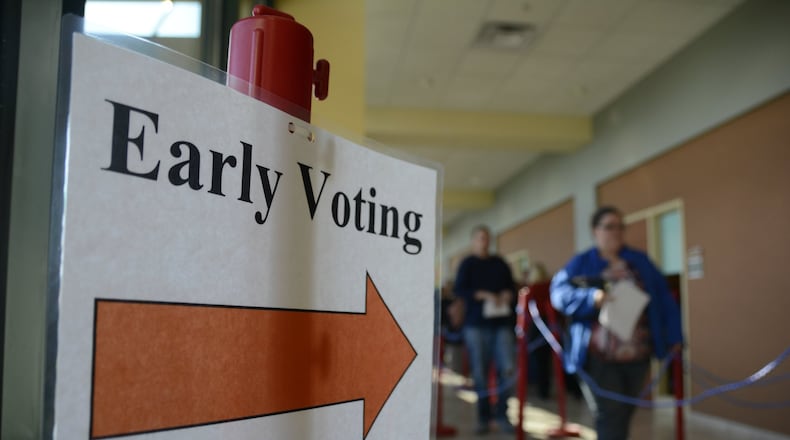Carruthers, who will wrap her first term at the end of December, said a second term will see a lot of the same action as her first term, working on job creation and lowering taxes.
Carruthers said she also wants to help the business community recover from the novel coronavirus pandemic when the health emergencies are lifted.
“We’ve lost a lot of companies,” Carruthers said, “and it’s been a real problem. We need to recoup financially from COVID.”
Carruthers also wants to push to fix school funding, which she thinks House Bill 305 can achieve but it’s been stuck in the House Finance Committee.
“We really haven’t looked at school funding in the proper way, and (House Speaker Robert) Cupp and (Rep. John) Patterson know this problem backwards and forwards, and have been working on it for years. They had a great plan and just didn’t have the money.”
She thinks this could be worked out in a few years “to make it feasible.”
“I think school funding is a real problem all over our state," she said. "There really isn’t adequate funding. Somebody always gets cheated and I don’t like that.”
Hamilton, who also ran for Fairfield City Council in 2015, said it was too late to circulate petitions and file as a candidate when he was asked to run for the 51st House District, but agreed to run a write-in campaign because he wants to represent a district he’s lived in for most of his life.
But he knows it’s a challenge as a write-in candidate, which is why he’ll be at the polls asking people to write his name on the ballot. The race also gives Hamilton “a chance to speak to residents.”
“People ask you questions and you get to talking with them about issues they’re concerned with,” he said.
One thing he’s hearing is the need to improve access to early childhood education, and he shows its importance through his 3-year-old granddaughter’s experience.
“She just has a real passion for learning," said Hamilton, who wants to see that passion instilled in other young children. “They just develop this incredible desire to learn at that age.”
If elected, he’d also work to find a new way to finance the transportation bill. Ohio raised the gasoline tax effective this year and created a license plate fee for hybrid vehicles ($100) and electric vehicles ($200).
“That’s going to have to be addressed because going down the road and looking to the future, we just can’t be having a $200 license plate (fees)," he said. "It’s early, but we need to discuss how we’re going to finance our roads (construction and maintenance).”
Voter registration in Ohio ends on Oct. 5 and early voting starts on Oct. 6. For voting information, contact the Butler County Board of Elections at 513-887-3700, or visit VoteOhio.gov.
ELECTION 2020
Count on the Journal-News for everything you need to know this election season.
We are the only news source covering all local candidates and issues on your ballot, and digging into a safe and accurate vote.
About the Author

